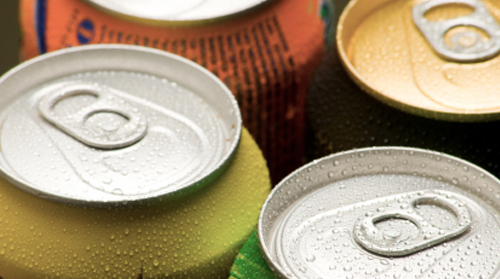
South Kern Sol, Commentary, Randy Villegas
Sixty percent. That is the percentage of Kern County residents considered obese. Out of the 58 counties in California, Kern tops the list in rates of heart disease, and comes in second for diabetes.
With such alarming numbers, it is time that we as a community begin to look seriously at how residents can begin to adopt healthier lifestyles.
Fortunately, there is one immediate step that we can take that has already proven effective in improving people’s health: implementing a soda tax.
According to a recent UCLA study, more than half of Californians either have diabetes or are pre-diabetic. More than one hundred diabetic Californians lose a leg, foot or toe every week because of the disease, according to state data.
As scary as that sounds, people continue to drink and consume sugary foods and drinks, specifically soda, at high rates. In Kern, 48 percent of children ages 2-17 drink one or more sugary beverages per day, compared to 41 percent in California, according to kidsdata.org.
Sugar sweetened beverages have become a daily ritual for far too many. With soda often cheaper than bottled water, and with the questionable quality of the local tap water across many parts of Kern County, it isn’t hard to understand why that is the case.
Mexico implemented a soda tax in January of 2014, charging an additional peso (about 6 cents) per liter of soda. As a result, sales of soda in the country fell by a total of 12 percent by December of 2014.
More recently, the city of Berkley approved a tax on sugary drinks in November 2014, despite a heavy lobbying effort by the soda industry to kill the measure. Since the tax was passed, researchers at University of California, Berkeley found that the cost of the added tax has been passed along to consumers, not to small business owners, as opponents of the tax contended. The result has been to discouraged people from buying.
In addition, funds collected from Berkley’s soda tax go into the city’s general fund to be used to support community-based healthy child/family programs and the Berkley Unified School District’s Cooking and Gardening program.
Mexico and Berkley are not Bakersfield. But I believe that we can learn a lesson from what both of these places have done. Just four days ago, Assemblyman Richard Bloom (D – Santa Monica) introduced a bill that would tax sugary drinks statewide. If passed, the bill is estimated to generate upwards of $3 billion-a-year, which lawmakers say would go directly to fund prevention and treatment programs to further reduce soda consumption.
Opponents of such a tax, including the soda industry, argue it would hurt small business owners and eventually the wider economy. But that one-cent increase on soda is a small price to pay compared to cost of treating the many Californians suffering from illnesses linked to soda consumption. According to the American Diabetes Association, diabetes costs in California were about $27.55 billion in 2012. Rather than pay that enormous toll, as a state we can make a change and take steps toward preventing diabetes from growing even more.
As a Kern County resident, I have witnessed firsthand what the effects of soda and sugar can have on a person. As a child growing up, I was obese and would often consume a couple of soda cans a day. Combined with a lack of exercise and not enough sleep, I was on a downward path likely ending in diabetes and other health problems. Luckily for me, my family encouraged me and together we began exercising at a local park, and making healthier choices.
However, I know that many families here in Kern County, especially in south Kern, aren’t entirely aware of the risks involved with high consumption of sugar. I also know that families often cave into buying their children sugary sodas and juices, partly because the prices are so cheap.
As Mexico and Berkeley have illustrated, a soda tax could make it easier for families here in Kern to begin making healthier choices. And California can set the example for other states to follow, as we build healthier communities, a healthier state, and hopefully a healthier nation to follow.
Randy Villegas, 21, is a student at Cal State Bakersfield and a youth reporter for South Kern Sol.